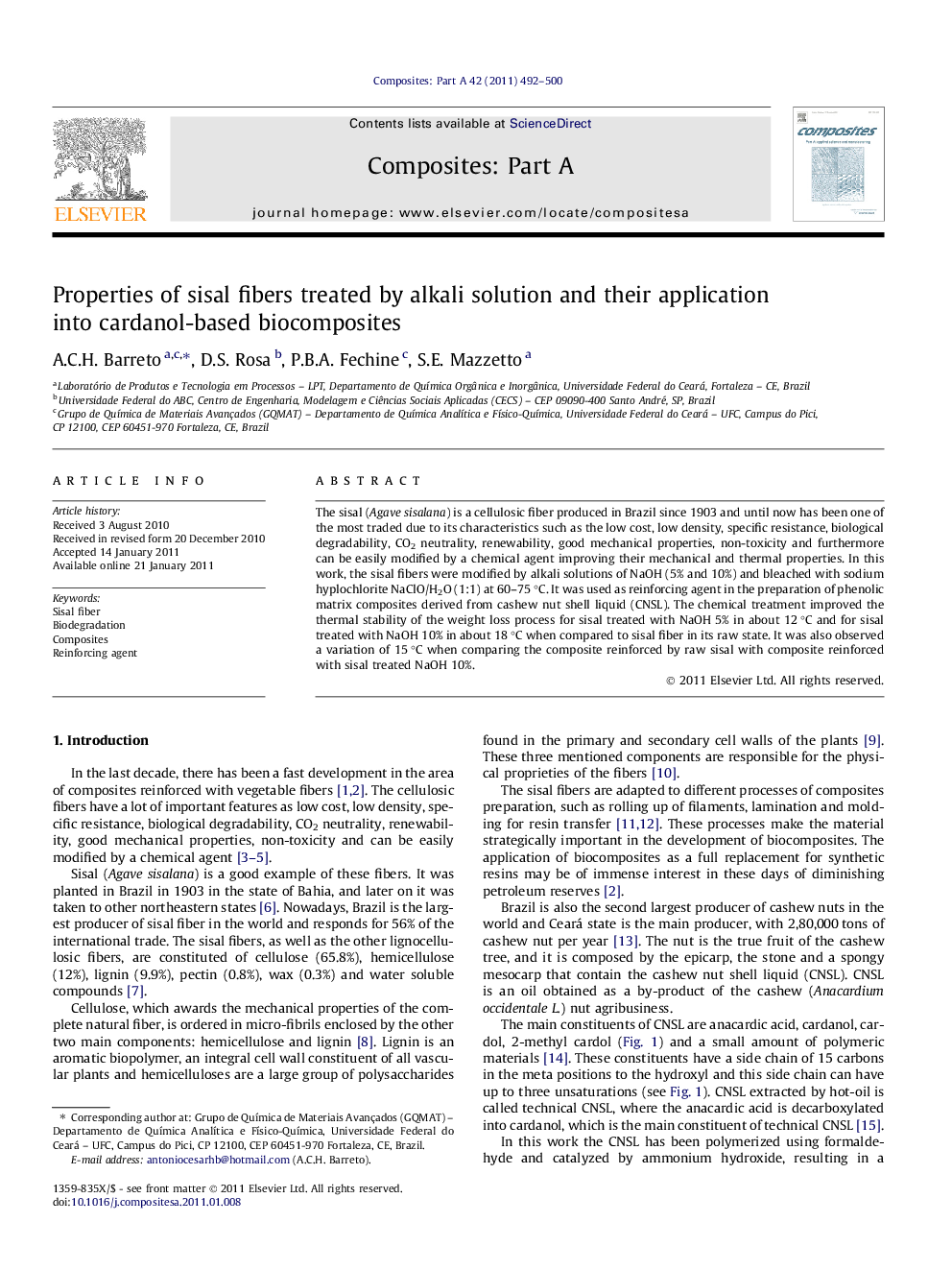| Article ID | Journal | Published Year | Pages | File Type |
|---|---|---|---|---|
| 1466615 | Composites Part A: Applied Science and Manufacturing | 2011 | 9 Pages |
The sisal (Agave sisalana) is a cellulosic fiber produced in Brazil since 1903 and until now has been one of the most traded due to its characteristics such as the low cost, low density, specific resistance, biological degradability, CO2 neutrality, renewability, good mechanical properties, non-toxicity and furthermore can be easily modified by a chemical agent improving their mechanical and thermal properties. In this work, the sisal fibers were modified by alkali solutions of NaOH (5% and 10%) and bleached with sodium hyplochlorite NaClO/H2O (1:1) at 60–75 °C. It was used as reinforcing agent in the preparation of phenolic matrix composites derived from cashew nut shell liquid (CNSL). The chemical treatment improved the thermal stability of the weight loss process for sisal treated with NaOH 5% in about 12 °C and for sisal treated with NaOH 10% in about 18 °C when compared to sisal fiber in its raw state. It was also observed a variation of 15 °C when comparing the composite reinforced by raw sisal with composite reinforced with sisal treated NaOH 10%.
